MercoPress. South Atlantic News Agency
Economy
-
Wednesday, March 13th 2024 - 06:19 UTC
Brazil's massive goods foreign trade is in US dollars but there are incipient deals in Euros and Reais
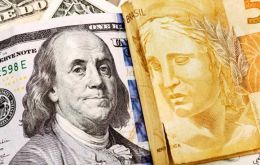
Brazil's foreign trade in goods, some US$ 640bn annually is done mostly in US dollars, some 95%, but there are some inroads to other currencies such as the Euro and its own Brazilian Reais. These figure come from an annual report on trade operations’ currency statements compiled by Brazil’s Foreign Trade Secretariat of the Ministry of Development, Industry, Trade, and Services (Secex-MDIC), and revealed last week.
-
Tuesday, March 12th 2024 - 18:35 UTC
FTA negotiations between Japan and Mercosur to start next month, Paraguayan FM says
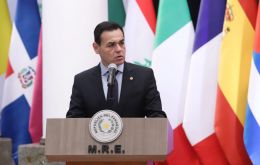
The South American Common Market (Mercosur) will start negotiating a Free Trade Agreement (FTA) with Japan next month, Paraguay's Foreign Minister Rubén Ramírez Lezcano acknowledged in an interview with the Nikkei economic newspaper. Paraguay currently holds the rotating presidency of the regional bloc.
-
Tuesday, March 12th 2024 - 10:46 UTC
Bolivian Senate stalling World Bank loan could make it go away

Bolivian authorities need to have the Senate approve a US$ 125 million loan from the World Bank at the earliest or else the credit agency might backtrack on granting it, Hydrocarbons Ministry Spokeswoman Rocío Molina warned Monday. Other five credits might follow suit given the Upper House's tardiness, Molina explained.
-
Tuesday, March 12th 2024 - 10:26 UTC
Argentina's Central Bank lowers interest rate

Argentina's Central Bank Monday lowered the annual interest rate from 110% to 80% “to strengthen the national economy and improve liquidity in the financial market,” it was reported in Buenos Aires. In addition, it was left up to each bank to decide on the minimum rate for fixed-term deposits.
-
Tuesday, March 12th 2024 - 10:00 UTC
With elections in June, EU plans to delay rules on imports from deforested areas and freeze the Green Deal
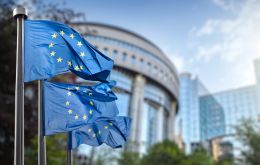
Following serious and combined complaints from Latin American, Asian and African countries, the European Union is prepared to delay the rules on exports from deforestation areas, it was reported in Brussels.
-
Monday, March 11th 2024 - 11:32 UTC
Milei caught red-handed “increasing” his own salary by 48%
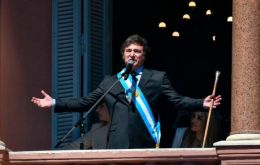
Just a few days after ordering Lower House Speaker Martín Menem to reverse his decision together with Vice President Victoria Villarruel to increase the wages of lawmakers by around 30%, Argentine President Javier Milei was forced to announce that he would do the same regarding a pay hike of around 48% he had decreed for himself and the members of his cabinet, it was reported in Buenos Aires during the weekend.
-
Monday, March 11th 2024 - 11:04 UTC
Paraguay, the best place in the region for business, says FGV
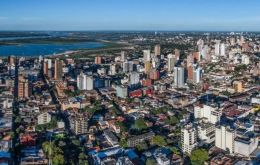
The Latin American Economic Climate Index (ICE) released this weekend by Brazil's Getúlio Vargas Foundation (FGV) highlighted Paraguay as the Mecca for business ventures in the region given the country's outstanding performance.
-
Saturday, March 9th 2024 - 09:04 UTC
Brazil leads the world in exports of seven food commodities
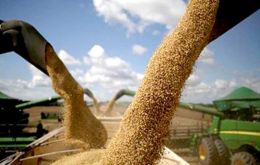
Brazil has become the global leader in the export of at least seven food commodities, following on a report distributed by BTG Pactual to its clients this week.
-
Friday, March 8th 2024 - 10:54 UTC
Argentina: Libertarian gov't wants wage hike for lawmakers reversed

Argentina's Lower House Speaker Martin Menem admitted Thursday that a bill was to be submitted to backtrack on the resolution granting wage increases of nearly 30% to lawmakers amid strict austerity measures affecting most of the country's population, particularly the more vulnerable.
-
Thursday, March 7th 2024 - 10:17 UTC
Argentine lawmakers from the “political caste” get wage increase
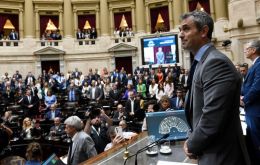
Argentine Vice President Victoria Villarruel as head of the Senate and Lower House Speaker Martín Menem agreed to increase the wages of lawmakers by nearly 30% effective from January 1, it was reported Wednesday in Buenos Aires.
